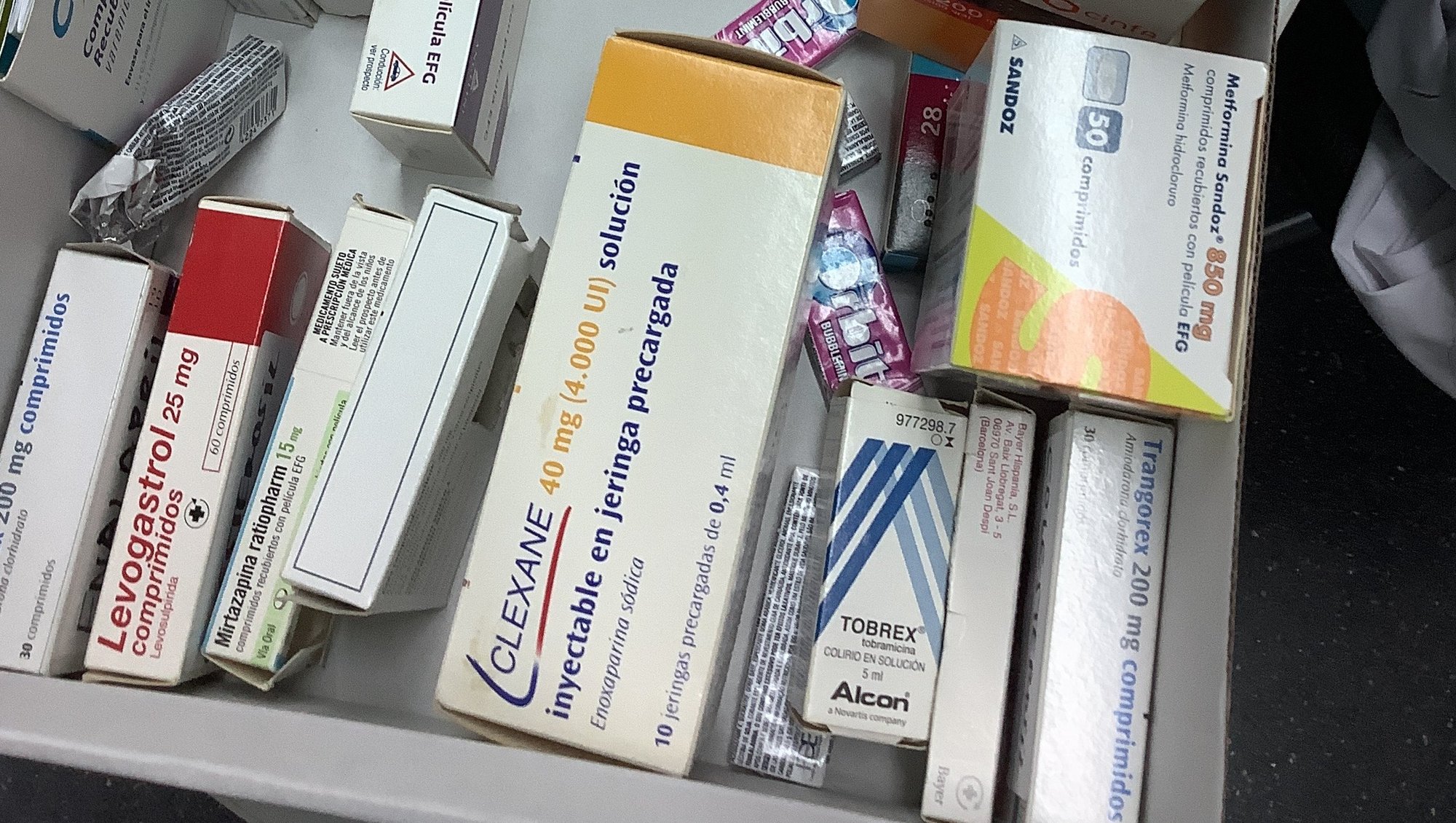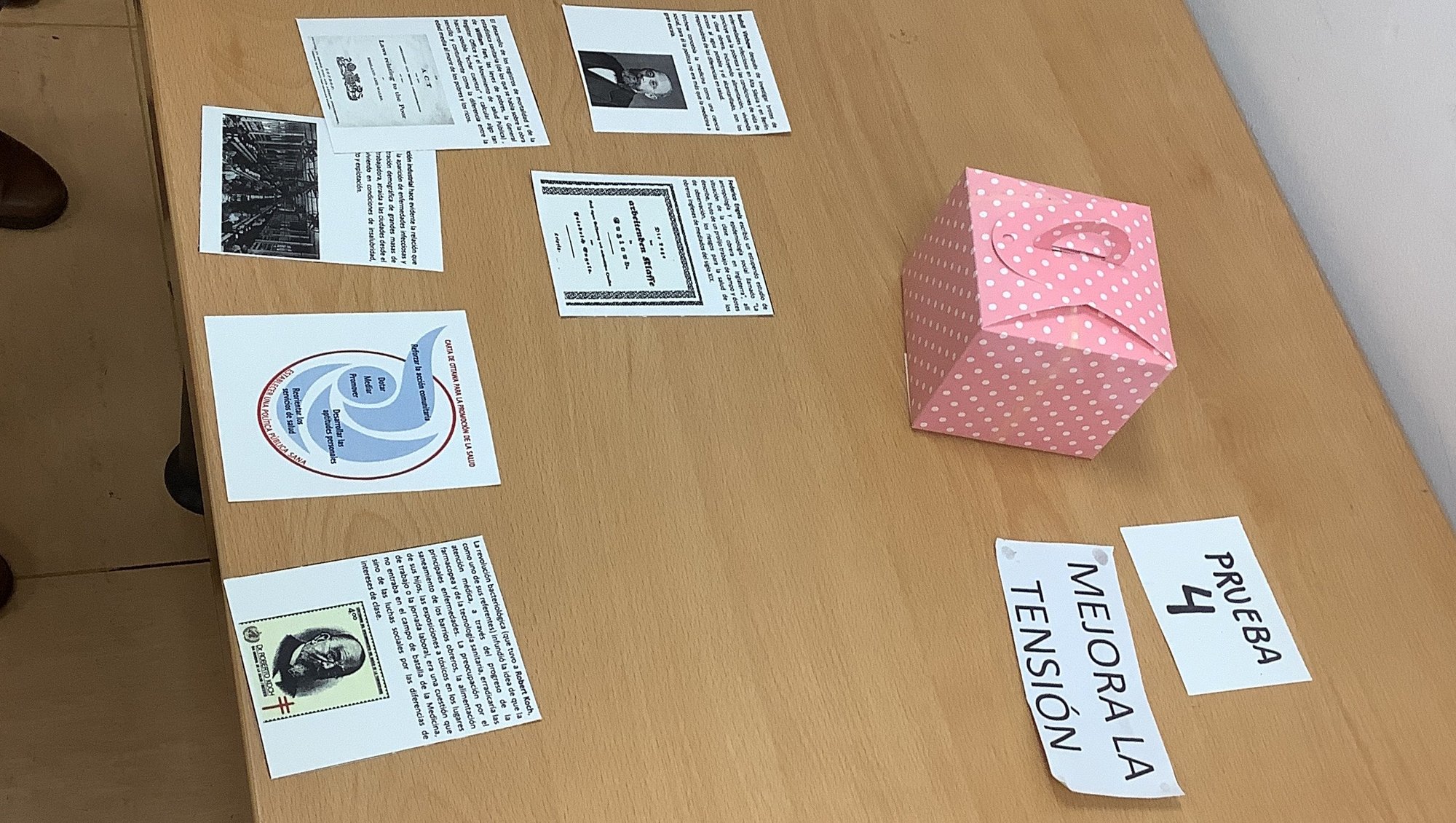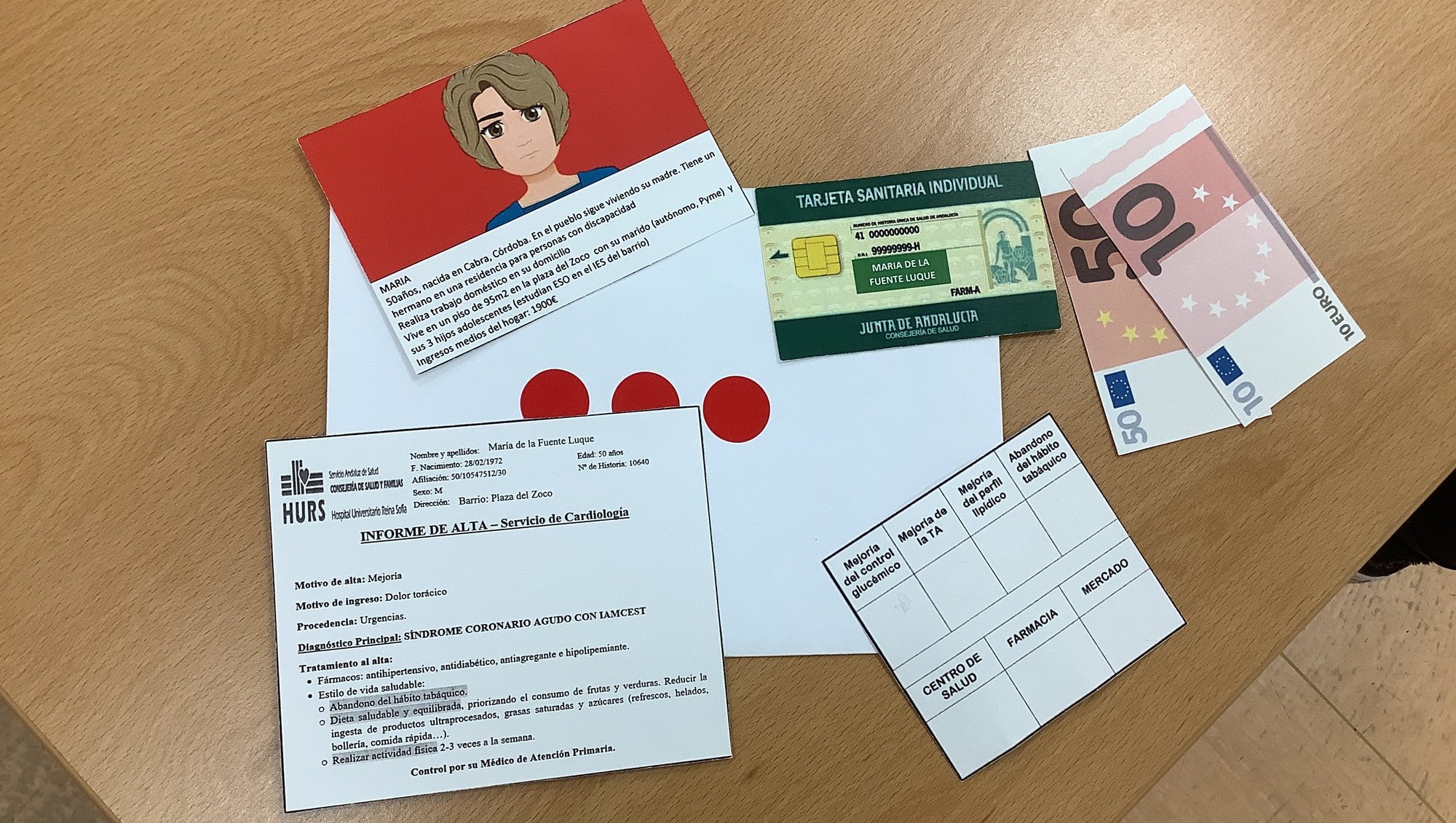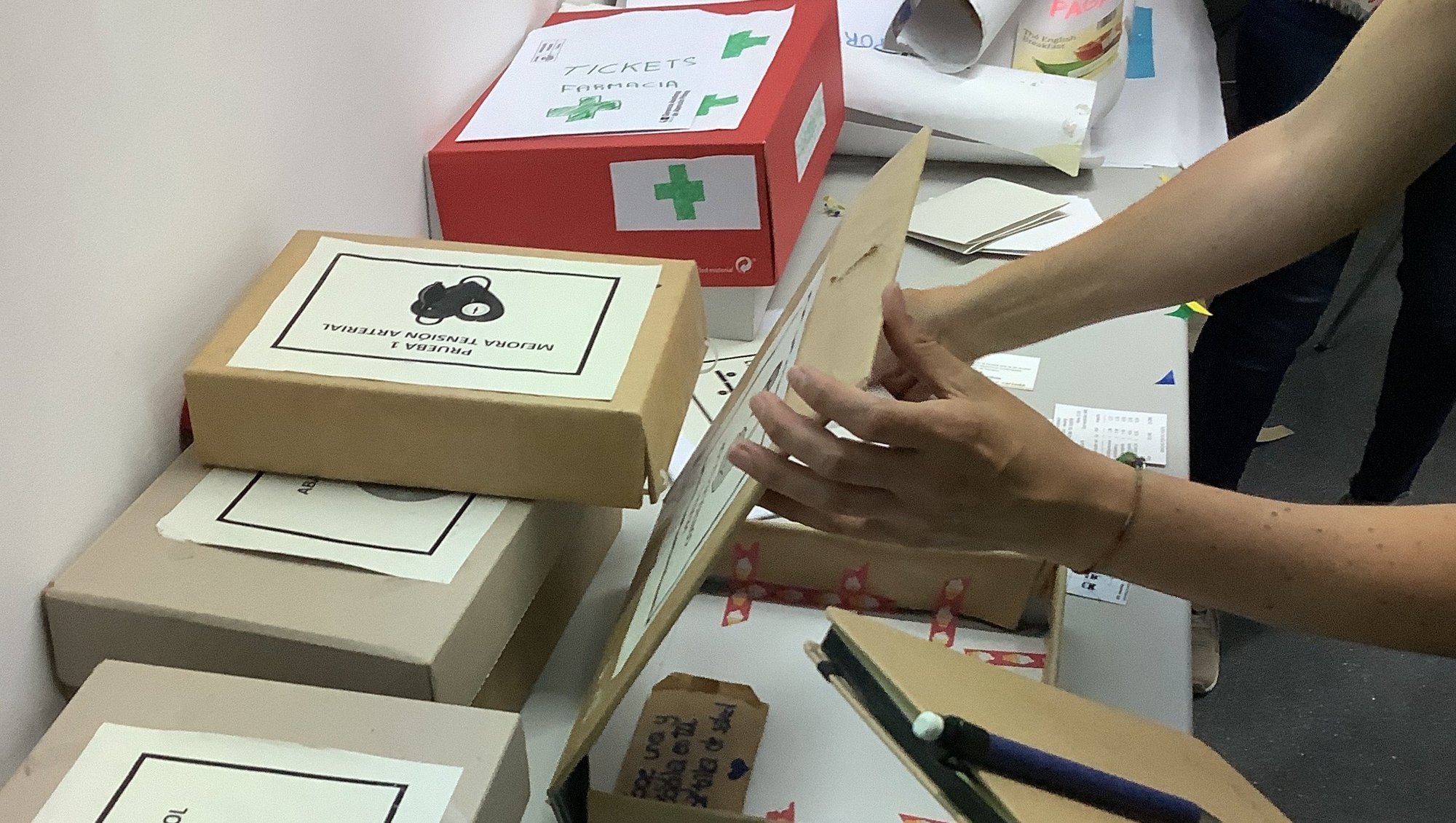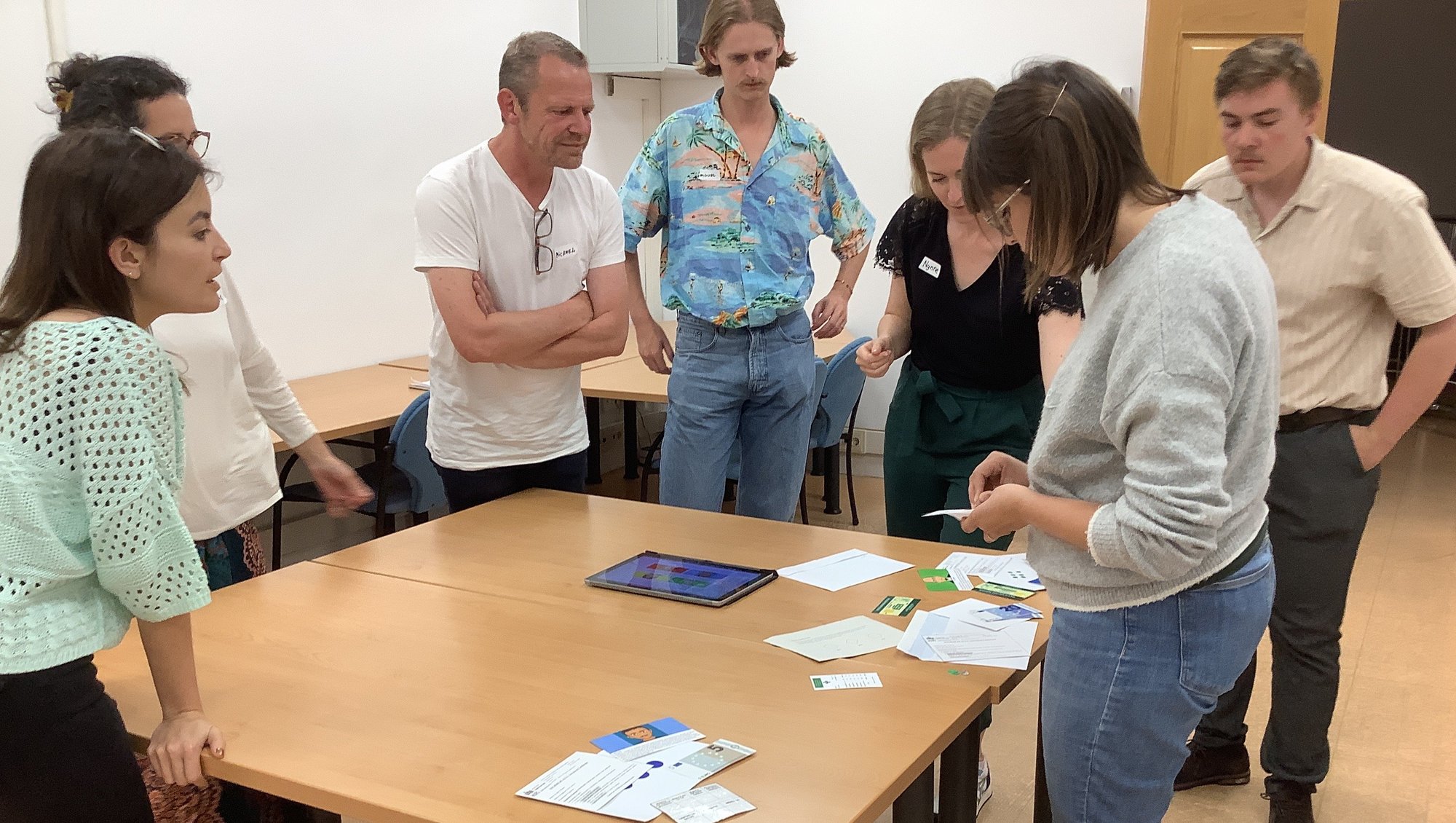New project puts students and health professionals in an escape room experience
An innovative educational project aims to reduce social inequality in health in a completely new way. Namely, by having students and health professionals play their way to a greater degree of empathy and understanding for socially vulnerable individuals.
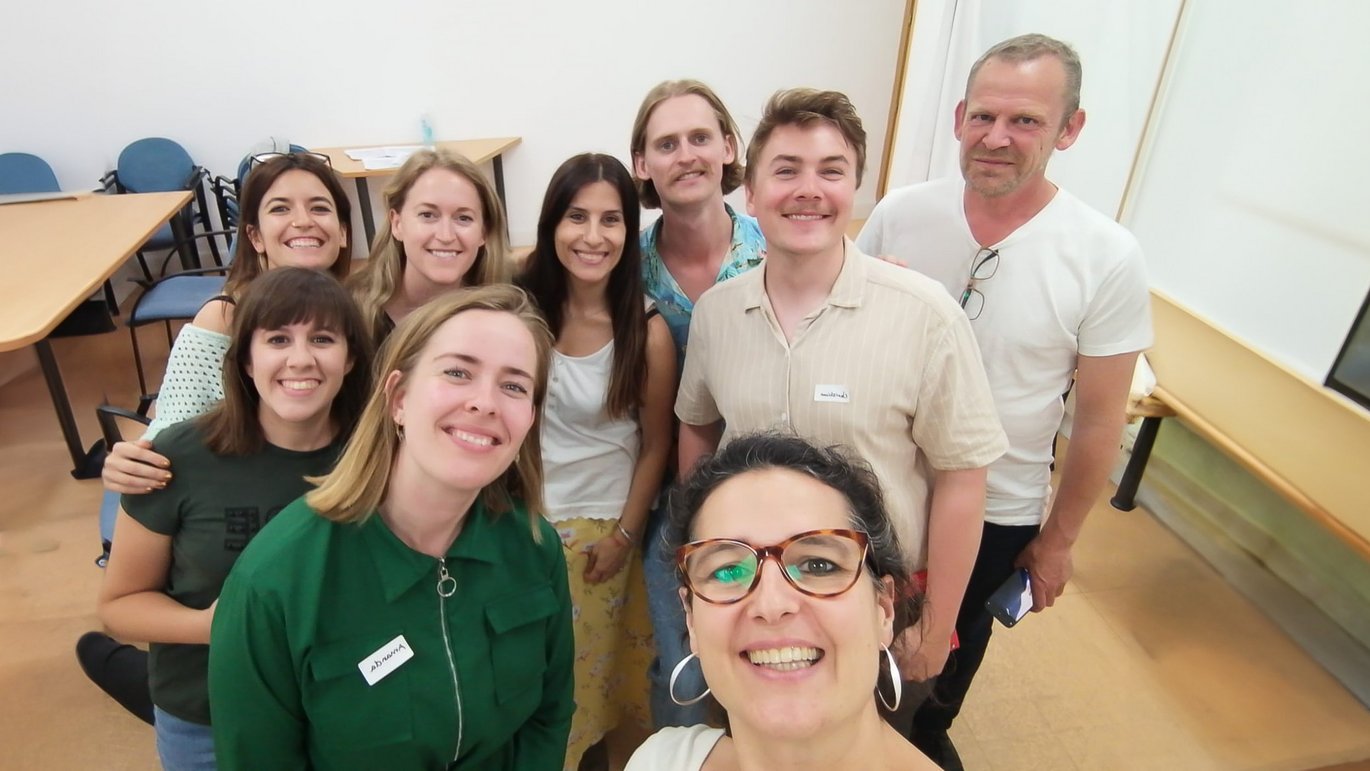
'The Escape Project' is the name of a new collaboration between the Institute of Public Health and the Research Unit for General Practice.
At an international conference in 2022, Amanda Paust was inspired by a presentation from two Spanish doctors. She is part of a group of doctors who have developed an interactive game that enlightens the participant about the challenges socially vulnerable groups face within Spain's health system.
"I have written a Ph.D. thesis on social inequality in medical treatment and am deeply passionate about the subject. After the conference, I couldn't let go of the idea of the game, and I had to investigate whether it could be adapted to a Danish context," says Amanda Paust.
Therefore, she approached Michael Fehsenfeld. He is an anthropologist and has worked with socially vulnerable groups for the past 14 years, teaching about inequality in health – including in relation to severe psychiatric cases.
"I remember when Amanda pulled me aside at an event in the lunchroom. She excitedly told me about this Spanish project, and we both saw great potential. That's why we decided to contact the team behind it, and in the spring of 2023, we went to Madrid along with our research assistant Nynne and a couple of medical students to take a closer look at how the game works," says Michael Fehsenfeld.
An Interactive Learning Experience
In Spain, they met the creators of the game, who have transformed their passion for justice in health into an interactive learning experience for students and health professionals.
"The doctors behind the game have created and run the project on a voluntary basis – one of them even engaged his mother to act as a character at one of the game's stations. It was incredible to see how they had created something so seemingly effective with such limited resources," says Amanda Paust.
The researchers spent several days observing the teaching and learning the mechanics behind the game. They returned home with a suitcase full of inspiration and a decision to adapt the concept to a Danish reality.
"Quite practically, the game involves participants taking on the role of patients with different social backgrounds, each of whom must navigate through situations in the health system and ensure their own health. The unique aspect is that the individual patient's background has a decisive impact on how difficult they find it to solve each task," explains Michael Fehsenfeld.
After returning home, the researchers applied for a grant from AUFF NOVA along with the rest of the project group. This allows them to transfer the Spanish model to a Danish context and evaluate the concept in collaboration with a project group, which includes Professor Helle Terkildsen Maindal, Professor Per Kallestrup, and research assistant Nynne Bech Utoft.
Inequality in Health
Research by Amanda Paust, Michael Fehsenfeld, et al. shows that social determinants, such as an individual's economic and educational background, play a significant role in their health and their treatment in the healthcare system.
Vulnerable individuals with lower social positions not only die 10 years earlier on average than the general population, but they are also generally sicker and receive poorer treatment in the healthcare system throughout their lives.
Students to Experience Health Inequality Firsthand
The core of the Escape project is a unique teaching concept based on 'gamification' – a way to allow participants to play their way to new learning and insights.
"At the moment, we are working on designing packages with materials for 'Escape Rooms', where participants must navigate through a series of health challenges with widely varying conditions. In our first version of the game, the characters have all suffered a stroke and must now try to secure good health on the other side," explains Amanda Paust, after which Michael Fehsenfeld continues:
"The collaboration with the team in Spain has given us new perspectives on how health inequality can look different from place to place, but also highlighted universal aspects. Once we have developed a strong prototype, I definitely believe that the game has the potential to be extended to other topics such as psychiatry or homelessness."
The game is designed as a journey through the labyrinth of the healthcare system, where participants step into the shoes of patients and experience health inequality firsthand. Each 'patient' starts with an envelope outlining their character and health history, and they are then sent on a mission full of challenges shaped by their social background.
"It's one thing to understand social inequality cognitively, but quite another to feel it firsthand. And that's what the game can do," says Michael Fehsenfeld.
Making a Difference in the Fight Against Social Inequality in Health
The researchers also focus on involving actors from civil society to learn more about how socially vulnerable individuals experience inequality in health in Denmark.
"We are neither clinicians nor vulnerable, so it's incredibly important for us to involve relevant actors who can ensure that the game is representative and reflects the real world. In addition, we have a strong collaboration with the Center for Educational Development (CED) here at Aarhus University, which helps with developing the learning aspect," says Amanda Paust.
The goal of the project is to integrate this alternative learning experience into educational programs for health professionals, including continuing and further education and medical studies. The first prototype of the game is already set to be tested on a group of Michael Fehsenfeld's students in April.
"By equipping future generations of health professionals with the necessary social skills and understandings, we hope to make a real difference in the fight against social inequality in health," says Michael Fehsenfeld. Amanda Paust adds:
"I spoke with a student who told me she was almost in shock the first time she met a vulnerable patient in the clinic. She didn't know how to handle a person who in no way resembled herself. If you can understand the person sitting across from you and put yourself in their situation, it will lead to better treatment. And there, we hope the game can make a difference," she says.
Contact
Assistant Professor, Ph.D., and anthropologist Michael Fehsenfeld
Aarhus University, Department of Public Health
Phone: 20 95 51 44
Email: mf@ph.au.dk
Postdoc, Ph.D., and candidate in public health Amanda Paust
Aarhus University, Department of Public Health and
Research Unit for General Practice
Email: amasa@ph.au.dk
